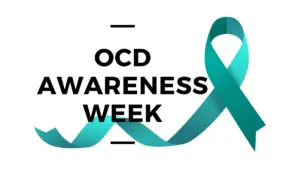Understanding What CBT Therapy Is
What is CBT therapy? Cognitive behavioral therapy, often called CBT, is a type of talk therapy that helps individuals recognize and change unhelpful thoughts and behaviors. It is widely used to treat both addiction and mental health conditions because it focuses on the relationship between thoughts, feelings, and actions.

Definition of Cognitive Behavioral Therapy
According to the Mayo Clinic, CBT therapy is structured, goal-oriented, and designed to address specific issues. It is based on the idea that negative thought patterns can create cycles of harmful behavior. By identifying and challenging those thoughts, individuals can improve their emotional well-being and decision-making.
Core Principles of CBT
The National Center for Biotechnology Information highlights several principles that define CBT. These include identifying distorted thinking, learning new skills, and practicing healthier behaviors. The goal is not only to address current struggles but also to equip individuals with long-term tools for managing challenges in daily life.
How CBT Therapy Works
Identifying and Replacing Negative Thought Patterns
CBT therapy helps individuals notice automatic thoughts that may lead to stress, anxiety, or unhealthy behaviors. Once identified, these thoughts can be challenged and replaced with healthier perspectives. This process helps people reframe their outlook and break patterns of addiction or negative coping.
Building Healthy Coping Strategies
As Harvard Health explains, CBT provides practical tools for handling stress, cravings, and triggers. Clients learn how to use relaxation techniques, problem-solving strategies, and healthier communication skills. These strategies support long-term recovery and improve overall resilience.
Benefits of CBT Therapy in Recovery
Supporting Addiction Recovery
CBT therapy plays a key role in addiction treatment. By targeting the underlying thought patterns that fuel substance use, it helps individuals develop healthier responses to cravings. This approach empowers clients to regain control over their choices and reduce the risk of relapse.
Treating Mental Health Conditions
CBT is equally effective for mental health concerns such as depression, anxiety, and PTSD. Clients learn to challenge negative self-talk, confront fears, and practice techniques that ease emotional distress. This makes CBT one of the most versatile therapeutic approaches available.
Preventing Relapse and Encouraging Long-Term Healing
CBT therapy equips individuals with lifelong skills. By practicing new coping mechanisms and reinforcing positive behaviors, clients build a strong foundation for maintaining recovery and overall mental health.
What to Expect in CBT Sessions
Structure of a Typical Session
CBT sessions usually follow a structured format. Clients and therapists set goals, review progress, and work through specific issues. Homework assignments, such as journaling or practicing coping techniques, are often included to reinforce learning between sessions.
Role of the Therapist and Client
In CBT, the therapist acts as a guide, but the client is an active participant. Progress relies on open communication, trust, and consistent effort. This collaborative approach ensures that therapy is tailored to the client’s needs.
How Oceanrock Health and South Coast Counseling Use CBT
CBT in Addiction Treatment Programs
At Oceanrock Health, CBT therapy is a core part of addiction treatment. Clients receive personalized plans that address both substance use and co-occurring mental health conditions. The structured approach of CBT ensures that progress is measurable and meaningful.
CBT for Dual Diagnosis and Mental Health
South Coast Counseling integrates CBT into dual diagnosis programs, treating both addiction and mental health together. This method provides a comprehensive path to recovery and gives clients the tools they need to handle daily challenges with confidence.
Taking the First Step Toward Therapy
Reaching out for help is the first step. Both Oceanrock Health and South Coast Counseling provide compassionate, professional care with CBT therapy as a cornerstone of treatment.
Why CBT Therapy Matters
Cognitive behavioral therapy is one of the most effective ways to treat both addiction and mental health conditions. By focusing on thoughts and behaviors, CBT therapy provides practical tools for lasting change. With trusted programs at Oceanrock Health and South Coast Counseling, individuals and families can begin recovery with confidence and hope.








